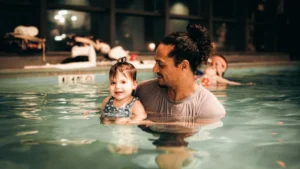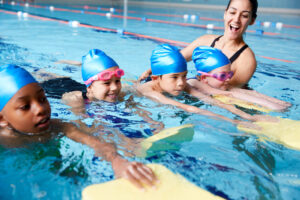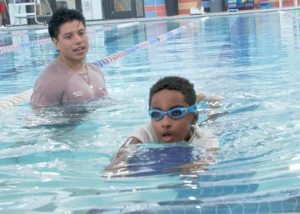Incorporate Mindfulness Techniques into Swimming Practice to Boost Your Performance
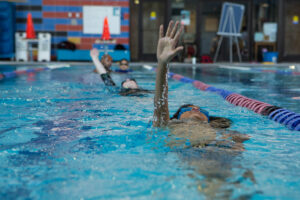
Olympic swimmers aren’t just incredible athletes— they are mental powerhouses, too!
In a world where the difference between a gold and silver medal comes down to the millisecond, Olympic swimmers need to take advantage of the power of their minds to stay ahead.
Many competitive swimmers use mindfulness techniques to enhance their performance and manage pre-race jitters. Studies show that mindfulness practices can significantly improve athletes’ mental health and boost their performance.
Whether you’re going for the gold or want to improve your personal best, we’ll show you mindfulness techniques of the pros that you can use too.
Why Mindfulness Works
Mindfulness practices improve swimmers’ mental health and performance.
These practices have been proven to reduce:
- Stress
- Anxiety
- Fatigue
- Burnout
Mindfulness enhances performance by sharpening focus and improving emotional regulation.
When athletes practice mindfulness, they train their brains to stay present and avoid distractions to fully focus on technique and execution. This heightened awareness allows swimmers to make split-second adjustments and maintain optimal form while competing.
Mindful athletes are more in tune with their bodies, which helps them recognize and address fatigue or injury before it becomes an issue.
Present Moment Focus
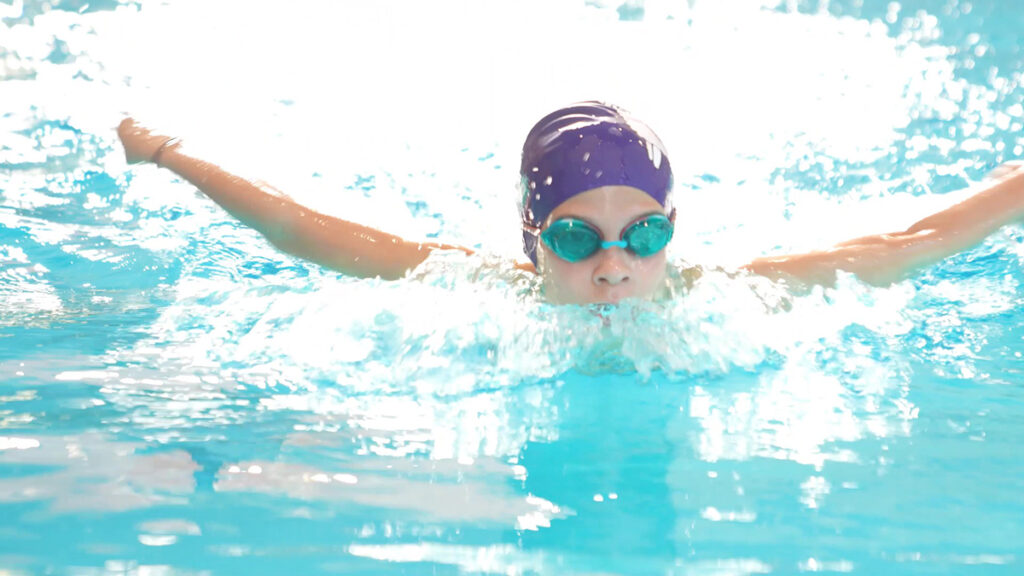
What Olympic Swimmers Do:
Michael Phelps, the most decorated Olympian of all time, is known for his laser-like focus. He practices being fully present in the moment— he is only thinking about his lane and his performance.
Try this:
- Before your race, take deep breaths
- Focus on what the water feels like on your skin
- Listen to the sounds around you
- Repeat a mantra like, ‘Here and now,’ or ‘This moment’
Visualization
What Olympic Swimmers Do:
Visualize the entire race from start to finish like Olympic swimmer Katie Ledecky.
Try this:
- Find a quiet spot and close your eyes
- Imagine your perfect race from start to finish
- Feel what your stroke should feel like at each part of the race
- Visualize overcoming challenges smoothly
Body Scanning
What Olympic Swimmers Do:
Use body scanning to relax and prepare their body for peak performance.
Try This:
- Start at your toes and work up to your head
- Notice any tension and consciously relax each body part
- Pay attention to your breathing
- Release any negative thoughts as you scan
Positive Self-Talk
What Olympic Swimmers Do:
Use positive self-talk like Caleb Dressel to boost confidence and override negative thoughts.
Try this:
- Identify negative self-talk and stop it
- Replace with positive affirmations like ‘I am strong’ or ‘Let’s go!’
- Practice daily throughout the day, not just during races
- Create a go-to list of positive phrases
Mindful Breathing
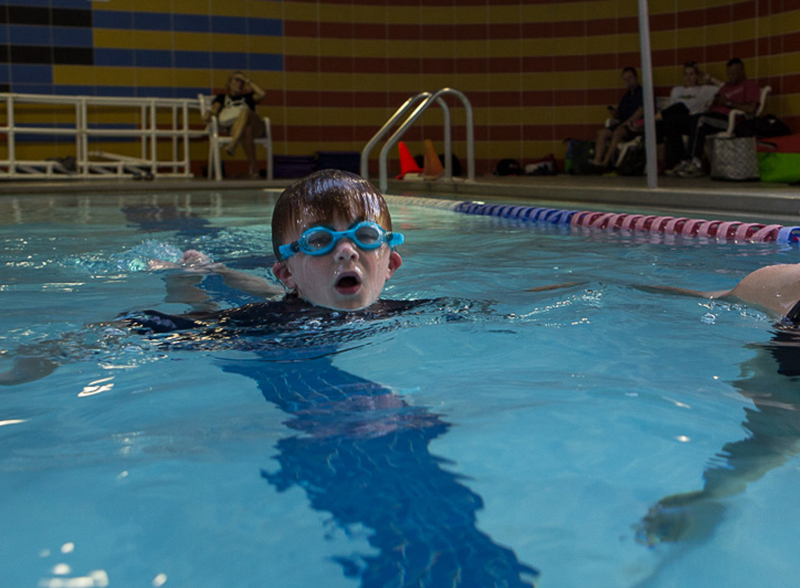
What Olympic Swimmers Do:
Controlled breathing calms pre-race nerves and improves focus.
Try This:
- Practice 4-7-8 breathing: Inhale for 4 counts, hold for 7, exhale for 8
- Focus on your breathing during warm-ups
- Use breath as an anchor when you feel overwhelmed
Mindfulness: An Inclusive Practice
Mindfulness isn’t just for Olympic athletes— these tools can benefit swimmers at every level, even beyond the pool.
By incorporating these techniques into your routine, you can regain control of your emotions and performance. Like any skill, mindfulness takes practice. Start with one or two of these techniques, be consistent, and watch your mental game soar!
Ready to dive into mindfulness and take your swimming to the next level? Include your WeAquatics swim instructor in your swim goals and incorporate them into your lessons. Our personalized, one-on-one Learn-to-Swim lessons are designed to help you achieve your swim goals— mental and physical.

